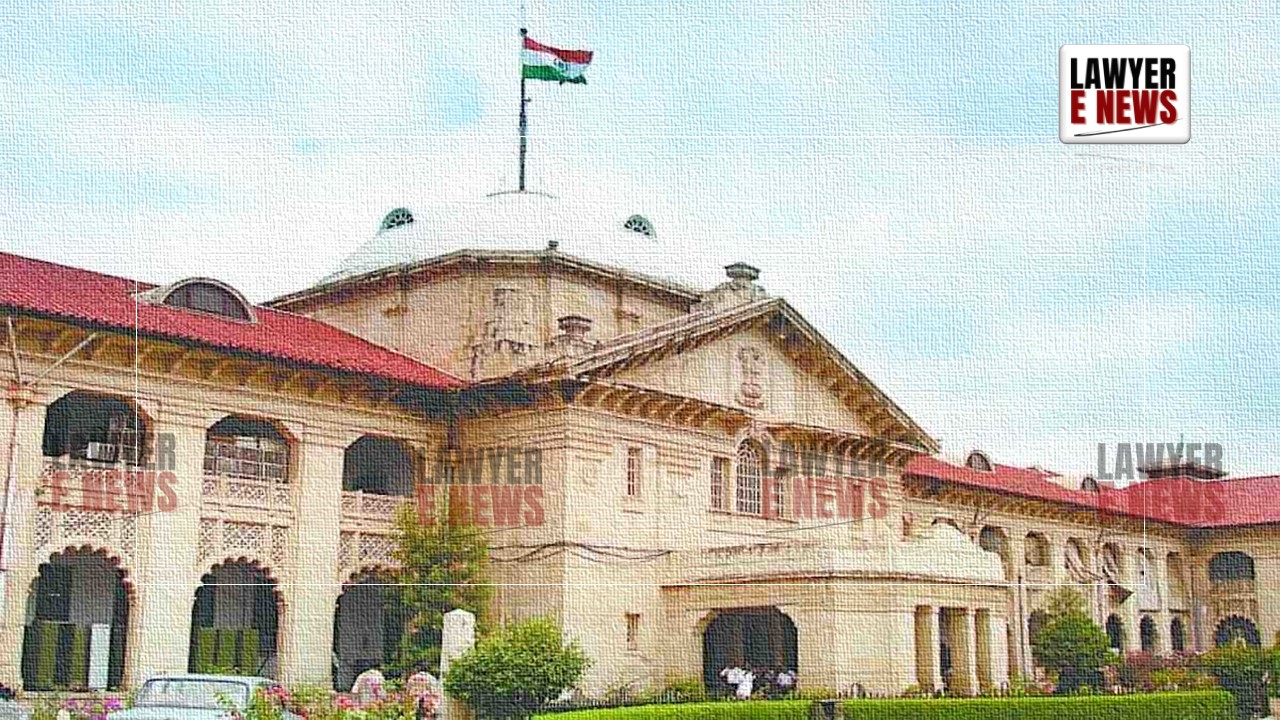-
by Admin
15 February 2026 5:35 AM



Bench emphasizes the necessity of truthfulness and transparency in judicial appointments, dismisses appeal of Group "D" staff member.
The Allahabad High Court has dismissed the appeal of Ram Sewak, whose employment as a Group "D" staff member in the District Court, Etah, was terminated for concealing a pending criminal case. The bench, comprising Justices Mahesh Chandra Tripathi and Prashant Kumar, upheld the decision, emphasizing the need for impeccable integrity and transparency in judicial appointments.
In response to an advertisement issued by the High Court Recruitment Cell in October 2022, Ram Sewak applied for the position of Group "D" on December 15, 2022. Upon completing the selection process, he received an appointment letter on June 1, 2023, and began his duties on May 24, 2023. Sewak submitted an affidavit during his appointment, affirming that no criminal proceedings were pending against him. However, during police verification, it was discovered that a criminal case (Case Crime No. 392/2022) was pending against him, involving charges under Sections 323, 452, 504, and 506 of the Indian Penal Code (IPC). This case had been registered on December 14, 2022, and a chargesheet was filed on January 8, 2023.
The court found that Sewak knowingly concealed the pending criminal case in his affidavit, which was a serious breach of integrity required for judicial positions. The bench highlighted the necessity of character verification and the potential harm to institutional integrity if individuals with questionable backgrounds are employed in judicial services.
The petitioner argued that he was unaware of the criminal case at the time of swearing the affidavit. However, the court noted that the chargesheet had been filed, and the petitioner had acknowledged the notice under Section 41-A of the Criminal Procedure Code (CrPC) prior to submitting his affidavit. This indicated his awareness of the case, thereby affirming the concealment allegation.
The court referred to the Supreme Court's ruling in Avtar Singh v. Union of India, emphasizing that providing false information regarding criminal cases is a serious offense. The integrity of the judicial system mandates strict adherence to truthfulness and transparency from its employees. The judgment reiterated that even if the petitioner was later acquitted, the act of concealment itself justified termination.
Justice Tripathi remarked, "The verification of character and antecedents of an employee is crucial for maintaining the integrity of the judicial system. Concealment of a pending criminal case undermines this integrity and cannot be condoned."
The High Court's decision to dismiss Ram Sewak's appeal underscores the judiciary's commitment to upholding high standards of integrity and transparency. This judgment serves as a reminder of the importance of honesty in the recruitment process and reinforces the legal principles governing the disclosure of criminal cases by candidates. The ruling is expected to influence future cases, ensuring that only individuals with impeccable character are appointed to judicial positions.
Date of Decision: July 1, 2024
